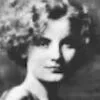Three Failures denote uncommon strength. A weakling has not enough grit to fail thrice.
Minna Antrim (1861-1950) American epigrammatist, writer
At the Sign of the Golden Calf (1905)
(Source)
Quotations by:
Antrim, Minna
To jest at physical deformities is to prove Yourself Unfit to breathe the air of Decency.
Minna Antrim (1861-1950) American epigrammatist, writer
Don’ts for Bachelors and Old Maids (1908)
(Source)
Debt is the sort of Bedfellow who is forever pulling all the Covers his way.
Minna Antrim (1861-1950) American epigrammatist, writer
Don’ts for Bachelors and Old Maids (1908)
(Source)
Don’t be afraid to thank a servant. Do so quietly, but unmistakably, whenever thanks are in order.
Minna Antrim (1861-1950) American epigrammatist, writer
Don’ts for Bachelors and Old Maids (1908)
(Source)
Better be known as a Rampant Iconoclast than as a sonorous Echo.
Minna Antrim (1861-1950) American epigrammatist, writer
Don’ts for Bachelors and Old Maids (1908)
(Source)
The guest who deliberately wounds his Host strikes a Manacled Man.
Minna Antrim (1861-1950) American epigrammatist, writer
Don’ts for Bachelors and Old Maids (1908)
(Source)
Never acquire the “all hands ’round” habit. Shake hands with your host, but a bow to the rest is sufficient.
Minna Antrim (1861-1950) American epigrammatist, writer
Don’ts for Bachelors and Old Maids (1908)
(Source)
Don’t be a man of “Intentions.” The world gives a man credit only for his deeds and, often, not even for them.
Minna Antrim (1861-1950) American epigrammatist, writer
Don’ts for Bachelors and Old Maids (1908)
(Source)
Don’t use the vulgaria’s patois. “Swell,” “Gent,” “Shine” and “Cop” are among his most common expressions.
Minna Antrim (1861-1950) American epigrammatist, writer
Don’ts for Bachelors and Old Maids (1908)
(Source)
Don’t rush madly into Matrimony. Those who do are as mad to rush out.
Minna Antrim (1861-1950) American epigrammatist, writer
Don’ts for Bachelors and Old Maids (1908)
(Source)
Experience is a good teacher, but she sends in terrific bills.
Minna Antrim (1861-1950) American epigrammatist, writer
Naked Truth and Veiled Allusions (1902)
(Source)
A fool bolts pleasure, then complains of moral indigestion.
Minna Antrim (1861-1950) American epigrammatist, writer
Naked Truth and Veiled Allusions (1902)
(Source)
The drama of life begins with a wail and end with a sigh.
Minna Antrim (1861-1950) American epigrammatist, writer
Naked Truth and Veiled Allusions (1902)
(Source)
He should die young who says he has neither erred, strayed or been deceived.
Minna Antrim (1861-1950) American epigrammatist, writer
Naked Truth and Veiled Allusions (1902)
(Source)
Doing all we can to promote our friend’s happiness is better than to continually drink to his prosperity.
Minna Antrim (1861-1950) American epigrammatist, writer
Naked Truth and Veiled Allusions (1902)
(Source)
Life is a madrigal or a dirge, according to the singer’s temperament.
Minna Antrim (1861-1950) American epigrammatist, writer
Naked Truth and Veiled Allusions (1902)
(Source)
A wise woman is never passé. She crosses the bridge spanning youth and age with firm step and smiling lips.
Minna Antrim (1861-1950) American epigrammatist, writer
Naked Truth and Veiled Allusions (1902)
(Source)
It takes not only humor, but sense, to enjoy a satirical story directed toward one’s self.
Minna Antrim (1861-1950) American epigrammatist, writer
Naked Truth and Veiled Allusions (1902)
(Source)
If one’s thoughts were written on one’s face, many would need masks.
Minna Antrim (1861-1950) American epigrammatist, writer
Naked Truth and Veiled Allusions (1902)
(Source)
I post no possible objection to a man being a fool, if he so desires, but I do protest against his asking me to wear cap and bells in his company.
Minna Antrim (1861-1950) American epigrammatist, writer
Naked Truth and Veiled Allusions (1902)
(Source)
A witticism is that clever thing you wish you had said, not listened to.
Minna Antrim (1861-1950) American epigrammatist, writer
Naked Truth and Veiled Allusions (1902)
(Source)
Experience has no text books nor proxies. She demands that her pupils answer to her roll-call personally.
Minna Antrim (1861-1950) American epigrammatist, writer
Naked Truth and Veiled Allusions (1902)
(Source)
Envy none. Every heart has some secret chamber of horrors, and those who seem the most gay have often the grimmest skeletons.
Minna Antrim (1861-1950) American epigrammatist, writer
Naked Truth and Veiled Allusions (1902)
(Source)
When I learn that husband and wife never quarrel, I know that indifference has set in, and after that — the deluge.
Minna Antrim (1861-1950) American epigrammatist, writer
Naked Truth and Veiled Allusions (1902)
(Source)
King Louis XV of France is attributed with saying, "Après moi, le déluge [After me, the flood]" to Madame Pompadour in 1757.
There can be no friendship without truth, but there can be a deal of truth without one grain of friendship.
Minna Antrim (1861-1950) American epigrammatist, writer
Naked Truth and Veiled Allusions (1902)
(Source)
Politeness is a gilt-edged investment that seldom misses a dividend.
Minna Antrim (1861-1950) American epigrammatist, writer
Naked Truth and Veiled Allusions (1902)
(Source)
There would be neither fruit nor flowers if God answered all prayers concerning the weather according to our folly.
Minna Antrim (1861-1950) American epigrammatist, writer
Naked Truth and Veiled Allusions (1902)
(Source)
When the final records shall be made clear, I think we shall be greatly amazed to see how alike in their frailties were men and women.
Minna Antrim (1861-1950) American epigrammatist, writer
Naked Truth and Veiled Allusions (1902)
(Source)
If you cannot be clever, be careful.
Minna Antrim (1861-1950) American epigrammatist, writer
Naked Truth and Veiled Illusions (1901)
(Source)
At twenty, men love women; at forty, girls; at fifty, themselves.
Minna Antrim (1861-1950) American epigrammatist, writer
Phases, Mazes, and Crazes of Love (1904)
(Source)
Separations are the tonics of Love, but beware of overdoses.
During a quarrel, to have said too little may be mended; to have said too much, not always.
Wives who are chummy with their husbands are apt to live contented lives.
Women cannot always love men who love them, but they always admire their taste.

